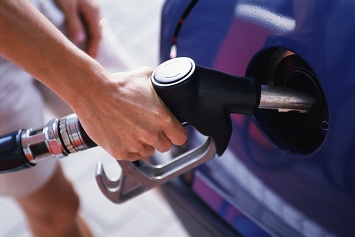In a joint press release, the EPA and the U.S. Department of Transportation’s National Highway Traffic Safety Administration (NHTSA) announced a notice of proposed rulemaking (NPRM) for the Safer Affordable Fuel-Efficient (SAFE) Vehicles, which seeks to establish new 50-state fuel economy and tailpipe carbon dioxide (CO2) emissions standards. The proposed SAFE Vehicles rule would revise Corporate Average Fuel Economy (CAFE) and CO2 emissions standards for model year (MY) 2021–2026 passenger cars and light trucks manufactured for sale in the United States.

The rule would also roll back California’s Clean Air Act (CAA) preemption waiver that grants the state the authority to set its own stricter-than-federal vehicle emissions regulations. The EPA contends that the waiver, which was granted to California in 2013 for the greenhouse gas (GHG) and zero-emission vehicle (ZEV) standards in its Advanced Clean Cars Program, does not meet the criteria that allows such a waiver to be granted.
Determination to Revise
By regulation, the EPA was required to review the established CO2 standards for MYs 2022–2025 and develop new CO2 standards if it concluded that the previously finalized standards were no longer appropriate. President Donald Trump ensured that the review would occur as required and stated that “[i]f the standards threatened auto jobs, then commonsense changes” would be made in order to “protect the economic viability of the U.S. automotive industry.” In April 2018, the EPA determined that the standards were no longer appropriate, leading to the proposed Safe Vehicles rule.
Under the proposed Safe Vehicles rule, the EPA’s preferred alternative is to retain the 2020 standards for fuel economy and tailpipe CO2 emissions through MY 2026. The agency claims that keeping the standards at 2020 levels will provide “a much-needed time-out from further, costly increases” in vehicle costs caused by the continuously tightening standards, and, according to acting EPA Administrator Andrew Wheeler, the agency is “delivering on President Trump’s promise to the American public that his administration would address and fix the current fuel economy and greenhouse gas emissions standards.”
California and the Opposition
Both the CAA and the EPA’s Energy Policy and Conservation Act (EPCA) preempt state regulation of motor vehicles, but the CAA allows California, via waivers of preemption, to establish motor vehicle standards more stringent that federal requirements and permits other states to adopt California’s standards. The EPA contends that this is a “fundamental and unnecessary complication in the currently-existing regulatory framework” and is seeking to revoke the waiver granted to California for its 2013 Advanced Clean Cars Program because the EPA believes that the state no longer meets the criteria for granting such a waiver.
The withdrawal of California’s waiver will allow the EPA to establish a new nationwide fuel economy and tailpipe CO2 emissions standard for passenger cars and light trucks, which, according to the EPA, will significantly reduce the cost of compliance for auto manufacturers.
However, California Governor Edmund Brown Jr., California Attorney General (AG) Xavier Becerra, and the California Air Resources Board (CARB) Chair Mary Nichols announced a strong opposition to the new proposal in a press release. The three called the proposal “an unprecedented and unlawful action that flies in the face of congressional intent and would aggravate the harms to consumers, public health, the economy and the environment caused by the weakening of the federal standards.” The statement also indicates that there is no need to revise the regulations because “at present, the car industry is on track to meet or exceed the clean car standards at issue.”
California’s governor, AG, and CARB head go on to say that the proposal would “put in place weakened emission and fuel efficiency standards at the expense of our health, our environment, and our economy,” and that “if enacted, this proposal will cost consumers billions of dollars in additional gasoline to run less efficient cars and light-duty trucks.”
California currently leads a coalition of 17 states and the District of Colombia (D.C.) in a lawsuit against the Trump EPA regarding its April 2018 determination that the MY 2022–2025 CO2 emissions standards were no longer appropriate and should be revised.
